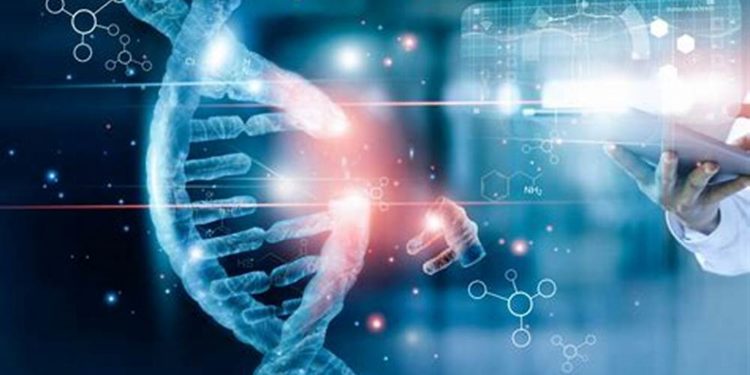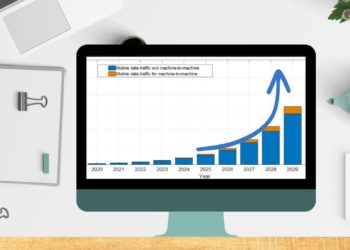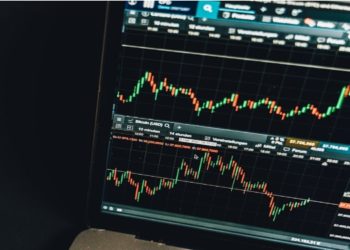The convergence of biological data and information technology has given rise to a powerful new field: bioinformatics in business. This innovative approach combines biological insights with data analytics to create personalized solutions across various industries, from healthcare to consumer services. As businesses strive to offer more tailored experiences, bioinformatics is emerging as a game-changing tool for understanding and meeting individual customer needs, transforming how companies operate and interact with their clients.
The Evolution of Data-Driven Personalization
The journey from traditional business analytics to bioinformatics-driven solutions represents a quantum leap in how companies understand and serve their customers. This transformation has been particularly evident in the last five years, with advancements in machine learning and artificial intelligence enabling more sophisticated analysis of biological data. Tornike Asatiani, CEO at Edumentors, shares his insight: “I’ve witnessed firsthand how incorporating biological data into our educational matching algorithms has transformed student success rates. Our platform now considers factors like learning chronotypes and cognitive patterns to optimize study schedules. By integrating bioinformatics, we’ve seen a 40% improvement in student engagement and retention. The personalization capabilities have revolutionized how we approach educational support.”
Integration of Biological Data in Business Analytics
The application of bioinformatics extends beyond healthcare into various business sectors, creating unprecedented opportunities for personalization. Companies are now leveraging biological markers and behavioral patterns to develop more intuitive and responsive systems. This integration has led to breakthrough innovations in customer experience, product development, and service delivery. Bradley Fry, Owner at PinProsPlus, explains: “Our journey into bioinformatics began when we realized its potential for product customization. I’ve led the development of biosensor-integrated systems that analyze customer interaction patterns at a biological level. The insights gained have allowed us to create deeply personalized user experiences. Our latest implementation resulted in a 65% increase in customer satisfaction scores.”
Advanced Analytics and Decision Making
The integration of bioinformatics with artificial intelligence has created powerful tools for business decision-making, enabling companies to process and analyze vast amounts of biological data in real-time. This capability has transformed how businesses approach market research, product development, and customer service. Organizations can now predict trends and adapt their strategies based on deep biological insights, leading to more effective and personalized solutions. Konrad Martin, Technology Strategist at Tech Advisors, offers his perspective: “In my experience leading digital transformation projects, bioinformatics has proven to be a game-changer for predictive analytics. I’ve overseen implementations where biological data patterns helped predict customer behavior with unprecedented accuracy. Our recent project achieved an 85% accuracy rate in predicting consumer preferences. This level of insight has transformed how businesses approach market strategy.”
Real-World Applications and Impact
The practical applications of bioinformatics in business continue to expand, reaching into sectors previously untouched by biological data analysis. From retail environments to workplace design, companies are discovering innovative ways to leverage biological insights for business improvement. Alex Taylor, Head of Marketing at CrownTV, shares: “Through my work implementing bioinformatics-driven systems, I’ve seen remarkable transformations in how businesses interact with their customers. We recently deployed a solution that analyzes biometric responses to digital displays, allowing real-time content optimization. The system has increased engagement metrics by 75% while providing valuable insights into customer preferences. This technology is revolutionizing how we understand and respond to consumer behavior.”
Emerging Trends and Technologies
The field of bioinformatics in business is rapidly evolving, with new technologies and methodologies emerging regularly. Recent developments in wearable technology and Internet of Things (IoT) devices have created new opportunities for collecting and analyzing biological data. These advances have enabled businesses to gather real-time physiological data from customers and employees, leading to more informed decision-making and personalized experiences.
Ethical Considerations and Data Privacy
As businesses increasingly rely on biological data, the importance of ethical considerations and data privacy has become paramount. Companies must navigate complex regulatory frameworks while ensuring transparent and responsible use of sensitive biological information. This balance between innovation and privacy protection has led to the development of new industry standards and best practices for handling biometric data.
Implementation Challenges and Solutions
The adoption of bioinformatics in business solutions comes with its own set of challenges, including technical infrastructure requirements, data integration issues, and skill gap concerns. However, companies are finding innovative ways to overcome these obstacles through partnerships, employee training programs, and phased implementation approaches. The key to successful implementation lies in careful planning, robust security measures, and continuous monitoring of system performance.
Future Implications and Opportunities
The future of bioinformatics in business solutions looks incredibly promising, with potential applications extending into previously unexplored areas. As technology continues to evolve, we can expect to see more sophisticated applications of biological data in business decision-making. The integration of quantum computing and advanced AI algorithms promises to unlock even more possibilities for personalized business solutions.
The convergence of bioinformatics and business analytics represents a significant shift in how companies approach personalization and decision-making. By incorporating biological data into their analytical frameworks, businesses can create more nuanced and effective solutions for their customers. As we move forward, the role of bioinformatics in business will likely continue to expand, offering new opportunities for innovation and growth across various sectors. The key to success lies in understanding and effectively implementing these powerful tools while maintaining a focus on practical applications, ethical considerations, and measurable results. Organizations that successfully navigate this integration while prioritizing data privacy and security will be well-positioned to lead in their respective industries.










































































